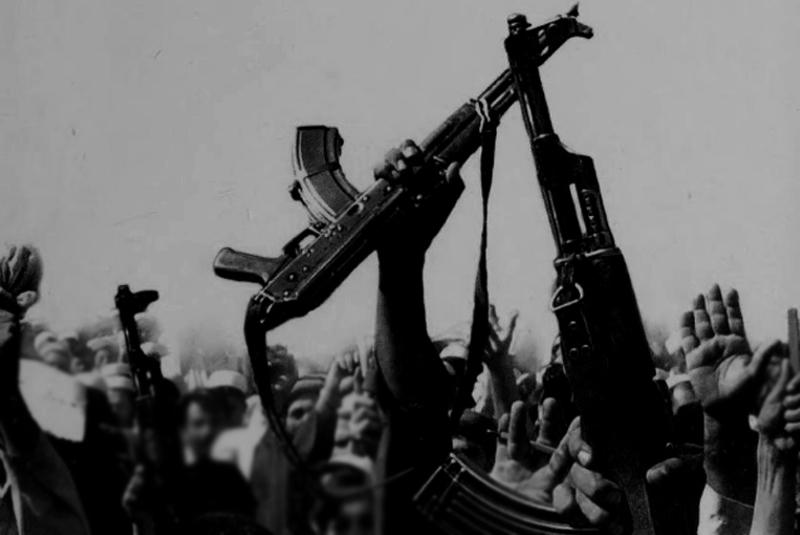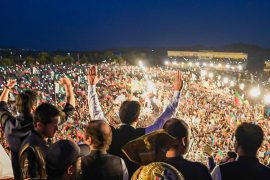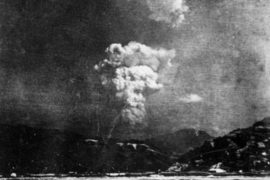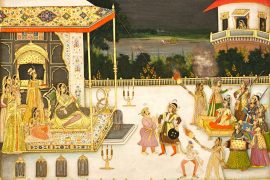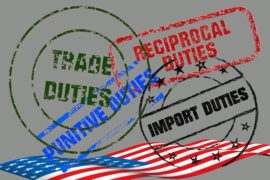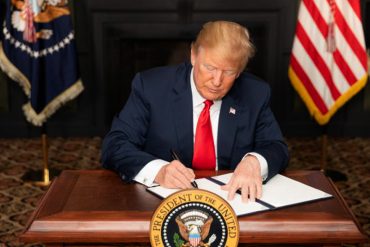On August 15, 2021, when the Taliban captured Kabul, Pakistan’s Prime Minister Imran Khan declared that the Afghans have broken the “shackles of slavery.” This sentiment resonated across Pakistan; political leaders, retired generals, religious seminaries and sports celebrities hailed it as a “historic victory” over “American imperialism.”
Within a week, the Pakistani establishment started advocating for the Taliban-led “government” in Afghanistan. The Taliban’s statements are “very encouraging,” said Imran Khan, and argued that the international community must “engage” with and “incentivise the Taliban to walk the talk.”
But the reality, sadly, is far removed from Imran Khan’s spin. The Taliban have not changed. They remain as barbaric and brutal as ever. Within a few days of capturing Afghanistan, they executed civilians and hung their blood-soaked bodies from a crane. Mullah Nooruddin Turabi–one of the UN Sanctioned Terrorists, now in-charge of prisons–said the Taliban will enforce extreme punishments, such as executions and amputations, as per Islamic law.
The list of serious human rights violations committed by the Taliban is growing by the day. In the last few weeks, the Taliban have massacred ethnic minorities, killed surrendered soldiers, targeted and murdered civilians. They cracked down on protestors, the media and civil society. They have also enforced internet blackouts and blocked mobile connectivity across the country.
“The Taliban are committing widespread serious human rights violations against women and children,” says Human Rights Watch. They have “instilled fear among women and girls by searching out high profile women, denying women freedom of movement outside their homes, imposing compulsory dress codes, severely curtailing access to employment and education and the right to peaceful assembly.”
Men, too, have had their rights curtailed. Shaving or trimming a beard is a now a crime in Afghanistan. Why? The Taliban think it goes against Islamic law. Men are not shaving or trimming their beards in the fear that they would be targeted by the Taliban. Salons and barbers, now considered a “forbidden business,” have been forced to shut down.
Afghanistan is facing an economic meltdown. The banking system is largely paralysed. People are unable to withdraw money from their bank accounts because the Taliban has restricted withdrawals to $200 per week. The ATMs in cities have been emptied. Money transfers from abroad have been suspended. Afghanistan is experiencing hyper inflation; food prices have increased more than 50 percent. Over 14 Million people in Afghanistan face acute starvation, according to the UN’s World Food Programme.
Put simply, the Taliban’s capture of Afghanistan has created a humanitarian catastrophe; the country is now “on the verge of a socio-economic collapse.”
Analysts have been quick to point fingers at “the West,” particularly the United States of America. The humanitarian disaster, they argue, is the result of Biden’s haphazard pull out from Afghanistan. But most analysts, with a few exceptions, have either ignored or overlooked Pakistan’s role in orchestrating this humanitarian disaster.
In this essay, I argue that Pakistan, by aiding and abetting the Taliban, is directly responsible for the current situation in Afghanistan.
Evidence shows Pakistan has, for six decades, destabilised Afghanistan by using jihadi groups as proxies. Pakistan’s support for the Taliban is no secret. In 2012, when the Taliban shot Malala Yousufzai in the head, Imran Khan, who was then a politician, citing a verse from the Quran, said, Taliban’s ‘holy war’ in Afghanistan is justified by Islamic law.
Pakistan was one of the three countries to recognise the Taliban “government” in the 1990s–and the last to break ties with them. In 2001, when the U.S. forces overthrew the Taliban, Pakistan provided safe havens to Taliban’s leaders.
Pakistan solicited funds, bankrolled Taliban operations and provided diplomatic support. It helped reconstitute the terror group through public recruitment campaigns and enlisted thousands of skilled and unskilled workers to join the ranks of the Taliban militia.
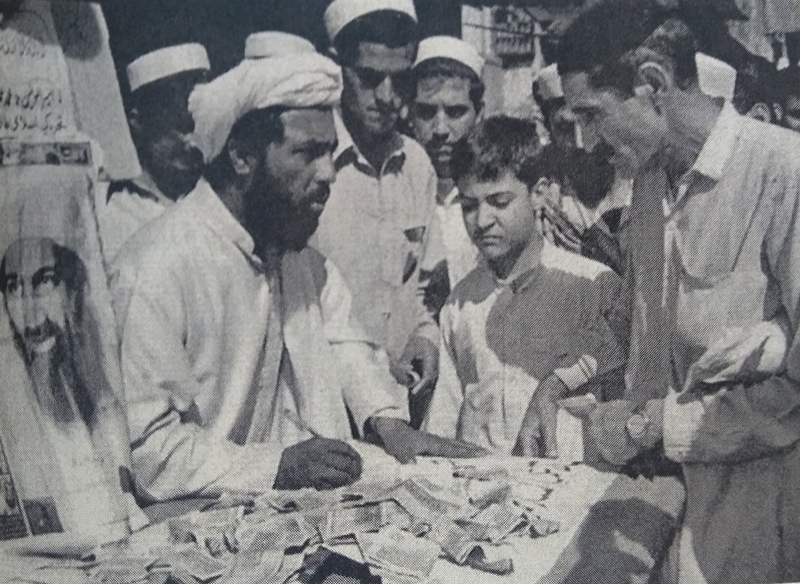
Pakistan’s spy agency, the Inter Services Intelligence (ISI), trained Taliban militia and provided direct combat support–including planning and executing major military operations. In April and May 2001, Pakistan supplied artillery shells, tank rounds, and rocket-propelled grenades in as many as thirty trucks, a direct violation of UN Sanctions, according to a Human Rights Watch report. Pakistan also provided medical facilities for wounded Taliban fighters, “a move that sustained the Taliban even as they lost thousands of foot soldiers.”
A point in case: Pakistan has long been home to the Haqqani Network, a terrorist group that carried out some of the deadliest attacks in Afghanistan. A “primary liaison” between the Taliban and Al Qaeda, the Haqqani Network, as the U.S. admiral Mike Mullen says, acted as a “veritable arm” of Pakistan’s intelligence.
Particularly, the ISI offered sanctuary and support to two members of the Haqqani Network–Sirajuddin Haqqani and Khalil Haqqani. Sirajuddin Haqqani is on the FBI’s most wanted list, with a bounty of 5 million dollars. Khalil Haqqani is a “Specially Designated Global Terrorist,” wanted for his association with Osama bin Laden and for financing and planning terrorist activities. The U.S. offers a bounty of US$5 Million for him.
Now, reportedly, with mediation from Pakistan’s former spy chief General Faiz Hameed, Sirajuddin Haqqani has been appointed as the Interior Minister, and, Khalil Haqqani, the Minister for Refugees in the Taliban-led “government.”
So, when Imran Khan pleads with the world to “engage” with and “incentivise” the Taliban, he is, in essence, asking the international community to give legitimacy to a terror group and recognise terrorists–criminals who massacred hundreds of people, financed and planned terrorist acts–as honourable members of the Afghan government.
But why would the Pakistani establishment–at the highest levels, including the Prime Minister, Foreign Minister and National Security Advisor–seek legitimacy for a terrorist group sanctioned by the United Nations Security Council? Why would Pakistan offer sanctuary to the Haqqani network? Why would Pakistan’s Prime Minister plead with the world to ‘engage’ with, and, ‘aid,’ the Taliban?
The answer is straightforward: rent seeking and terror financing are the models on which Pakistan’s economy has survived for decades. Incontrovertible evidence, gathered through the decades, proves Pakistan has, and is, soliciting American tax dollars–in the name of fighting terrorism–and laundering that money to support jihadi groups.
A point in case: In a country of 220 million, only one percent of the population, i.e., 2.2 million people, pay taxes. If that’s the case, how does Pakistan’s economy survive?
“Pakistan’s economy” writes Lawrence Wright, for The New Yorker, “is now almost entirely dependent on American taxpayers.” The main beneficiary of the U.S. money is the Pakistani military, which “has never won a war, but, has done very well in its investments: hotels, real estate, shopping malls.” The Pakistani political scientist Ayesha Siddiqa, in her book Military Inc, documents Pakistan’s Military economic activities and its consequences.
“American money has filled in the much needed gaps in Pakistan’s economy.” Yet, Pakistan has been, and is, “one of the most Anti-American countries in the world and a covert sponsor of terrorism.” Most of the world’s jihadi groups–whose stated goal is to destroy America–found, and, continue to find, a home in Pakistan. These jihadi groups, which the ISI uses to get their dirty jobs done, have indeed proved to be valuable assets in Pakistan’s rent-seeking strategy.
Pakistan “has spent decades setting fires in South Asia—and then expected praise and remuneration for offering to put them out,” writes Christine Fair, Professor at George Washington University. Indeed, Pakistan has a long tradition of playing international powers. Observing closely, one can identify an established modus operandi, a pattern, to Pakistan’s double game:
One: nurture and support jihadi outfits, particularly Sunni extremists, who believe killing “kafirs” or “infidels” is their religious duty
Two: aid and abet jihadi groups by offering them safe sanctuaries, training them in military and operational combat, and, providing logistical and operational support in carrying out terrorist attacks across the globe
Three: cry victim of terrorism and seek financial support from the West, particularly the United States of America, to help fight terrorism
Four: launder these funds to finance jihadi groups, and, of course, to enrich the top brass of the Pakistani establishment
Charting the course of history, one can see how Pakistan used Jihadi groups–not just the Taliban but also other terror groups–to destabilise Afghanistan and seek rent from the United States, in the name of military and economic aid, to “clean up the mess.”
In 1947, Afghanistan was the only state to oppose Pakistan’s membership in the United Nations. Between 1950s and 1970s, Afghanistan and Pakistan were at odds with each other, often engaging in military skirmishes. So, to destablise Afghanistan, Pakistan lent its weight to the jihadist group Jamaat-e-Islami, the fountainhead from which most of the mujahideen groups sprung up.
In August 1973, to destabilise Daoud Khan’s military’s government in Afghanistan, Zulfikar Ali Bhutto, the Prime Minister of Pakistan at the time, set up the Afghan working group within Pakistan’s Inter-Services Intelligence (ISI) directorate, through which they supported and surreptitiously financed over fifty “Afghan Resistance groups.”
In 1978, when Muhammed Zia-ul-Haq, the Pakistani general declared martial law and ousted Bhutto, assumed the role of the President, he continued supporting the policy of supporting “Afghan Resistance groups.” But the fifty or so “Afghan Resistance groups” consolidated into seven major Sunni Afghan Islamist militant groups with the ISI’s help.
Zia, who was instrumental in the Islamisation of Pakistan, bolstered institutional support for jihadi groups. Aimed at strengthening and spreading Islamist ideology, he set up a network of madrassas (religious schools), which “proved to be the most essential support base for jihadi groups.”Consequently, under Zia’s patronage, extremist jihadi groups mushroomed in Pakistan.
On December 24, 1979, when the Soviet Union invaded Afghanistan, Zia saw an opportunity. He knew that the United States, to deter the Soviets, would get into the fray because of the Cold War. When President Jimmy Carter, in a panic, offered 400 million dollars as economic and military aid, Zia rejected the offer, calling it “peanuts.” Zia held out–and the Americans caved in.
Eventually, Zia managed to squeeze billions of dollars from the United States, in the name of military and economic aid, to support the Afghan Mujahideen. Under Ronald Reagan, the U.S. aid nearly quintupled–three billion dollars in economic assistance and two billion in military aid; Pakistan insisted on controlling the distribution of funds and arms through the ISI.
By 1981, the ISI started an initiative to recruit radical Islamists from around the world to come to Pakistan and fight with the Afghan Mujaheddin. The hundreds of madrassas, funded by Zia’s military government, became hubs for jihadi groups. Between 1982 and 1992, around 35,000 Islamist radicals from 43 countries came to Pakistan. Eventually, more than 100,000 Islamist radicals, influenced by jihadi ideology, had direct contact with Pakistan.
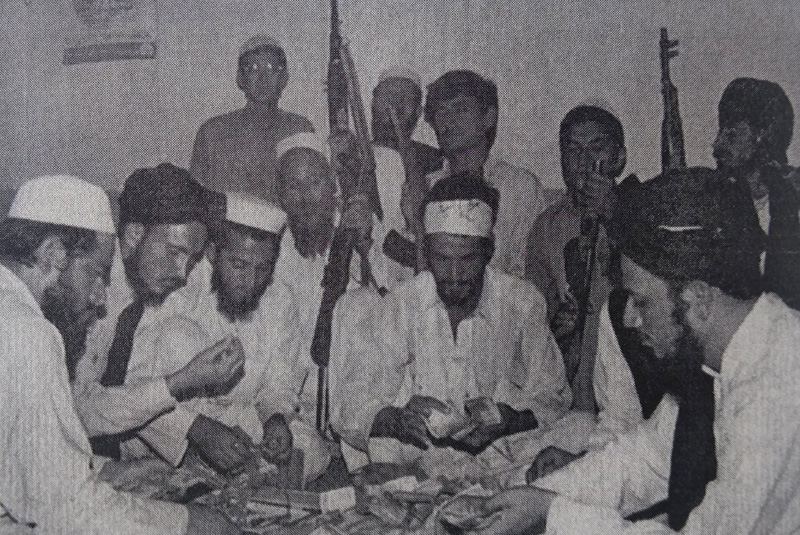
The U.S., which took a myopic view–to see the Soviet Union suffer a defeat in Afghanistan–unwisely gave Pakistan a free hand. “What was more important in the world view of history? The Taliban or the fall of the Soviet Empire? A few stirred-up Muslims or the liberation of Central Europe and the end of the Cold War?” asked Zbigniew Brzezinski, a former US National Security Adviser.
Osama bin Laden was one among the thousands of young radicals who came to Pakistan. Bin Laden first arrived in Peshawar, Pakistan, in 1980, and within two years (by 1982), decided to settle there. Soon, Osama bin Laden and Hamid Gul–Zia’s blue-eyed boy who worked with the ISI, a bitter, anti-American man–formed a deep bond with each other. And by 1984, Osama bin Laden’s activities were centred mainly in the Afghanistan-Pakistan region.

Pakistan’s “jihadi ISI directors, such as Hamid Gul, Jared Nazir and Mahmoud Ahmed,” writes Owen L Sirrs, in his book Pakistan’s Inter-Services Intelligence Directorate, “agreed that sanctioned religious violence was justified in establishing Islamic states in Afghanistan, Chechnya, Xinjiang, Palestine, the Philippines and other areas.”
Indeed, the ISI provided resources and institutional support, channeled funds for the Afghan jihadis. The ISI spent 600 million dollars of American money to support Gulbuddin Hekmatyar, known as the “butcher of Kabul,” who waged wars on fellow Afghans. Much of this was orchestrated by Hamid Gul of the ISI.
In 1984, when Abdullah Azzam, a radical Jordanian Palestinian and Osama bin Laden founded the Maktab al-Khidamat (MAK), the forerunner to al-Qaeda, to collect funds and recruit Islamist radicals for their cause in Pakistan, the Pakistani government donated land and resources to the centre. The ISI, which maintained close links with the MAK, funnelled money from Al Mukhabarar Al A’amah, Saudi Arabia’s intelligence agency.
Pakistan’s deep connections with Osama bin-Laden are also well documented. Several ISI officials, who had come in contact with Osama bin Laden, publicly admired him. Such was their admiration that the ISI encouraged Osama bin Laden to interfere in Pakistan’s internal politics. For instance, in 1989, Osama bin Laden secretly met Nawaz Sharif through a former ISI official, K.K., and had offered him financial support to dislodge Benazir Bhutto from power. (Hassan Abbas, Jihadi Outfits: Pakistan’s Drift Into Extremism: Allah, Army and America’s War on Terror, pg 203).
Bin Laden himself pointed to continued support from some elements in the Pakistani intelligence services in an interview. “As for Pakistan there are some governmental departments, which, by the Grace of God, respond to the Islamic sentiments of the masses in Pakistan. This is reflected in sympathy and co-operation. However, some other governmental departments fell into the trap of the infidels. We pray to God to return them to the right path,” he said.
After the Soviets withdrew in 1989, Pakistan exploited this indifference to lay the groundwork for its own plan to turn Afghanistan into a client state. Also, the Pakistani establishment, which was worried that Afghans might prefer a return to the pre-war monarchies, worked diligently marginalise the influence of Afghan nationalists and royalists.
In 1990, in response to Pakistan’s pursuit of nuclear weapons, President George Bush forze military aid to Pakistan. Much of the economic assistance was focused on counter-narcotics efforts. And by 1991, Osama bin Laden left Afghanistan and set up a base in Sudan. But after 1998, when Pakistan started testing nuclear weapons, U.S. assistance declined to 45 million dollars a year.
Within a few years, on 11 September 2001, America faced one of the deadliest attacks in its history. In response to the attack, when President George Bush waged the “Global War On Terror,” Pakistan presented itself as a “frontline ally” and offered to help America. In return, America gave billions of dollars to Pakistan, most of it in unrestricted funds, to combat terrorism. Pervez Musharraf, now admits that during his tenure he diverted many of those billions to arm Pakistan against India.
When I met Zafarullah Khan Jamali–a man who, as the Prime Minister of Pakistan, had a fractious relationship with President Musharraf–I asked him if there was a possibility that Osama bin Laden had returned to Pakistan and set up a base in Peshawar. Irritated, Jamali retorted: “I don’t feel the need to respond to such speculative questions.” He paused for a second and continued speaking in his deep voice, “there is a difference between speculation and facts on the ground. We don’t want the al-Qaeda mess on our soil. But journalists like you must not look at the world through the same lens. You have to understand that those who are labelled as terrorists by some are freedom fighters for the others. Unfortunately, some people at the highest levels of our government, who keen on pleasing the mighty powers that be, are bending over backwards for them [Americans].”
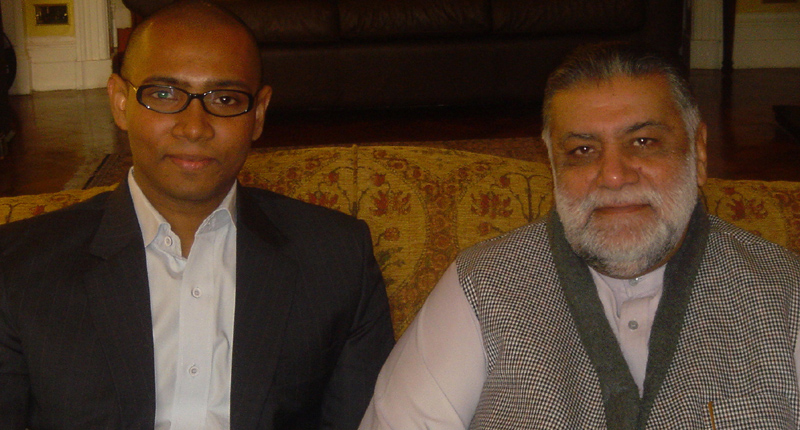
When some newspapers published unconfirmed reports claiming Osama bin Laden was hiding in Waziristan, Jamali denied them, said they were “factually inaccurate.” In 2003, when western media outlets published reports of possible Pakistani nuclear leaks to North Korea and Iraq, Jamali denied that Pakistan’s nuclear technology had been leaked, calling them “mischievously motivated.” We now know Jamali’s assertions are false. Pakistani leaders knew that Osama bin Laden was in Pakistan.
Frustrated with Pakistan’s duplicity and double games, Hamid Karzai, then Chairman of Afghan Transnational Authority, publicly chided Musharraf. “It is a reality that fundamentalism has come to Afghanistan from the other side [of the Pakistan border]. We have talked with President Pervez Musharraf about this and I will continue to talk about this matter in the future,” Karzai said.
The Afghan Foreign Minister Abdullah Abdullah had also publicly reiterated Afghanistans concerns on a radio network: “Afghanistan’s people and government expect the government of neighboring Pakistan to try to stop the Taliban leadership–who are sheltering in Pakistan–from causing the security situation in Afghanistan to deteriorate.” It’s not just a few people in Afghanistan’s leadership, but “many Afghans are mistrustful of Pakistan because of its sponsorship of the Taliban during the war.”
But Pakistan’s double games continued. Even after Musharraf left office, there has been no indication of U.S aid being properly spent. In 2010, over $4.5 billion went to Pakistan–one of the largest ever given to a foreign country. However, the money was not used for counter terrorism efforts.
On the contrary, the number of militant jihadi groups had multiplied under the ISI’s patronage. As the ISI funnelled American money to extremist outfits, leaders of extremist groups saw Jihad as a profitable business venture. They started “rent a son” schemes which encouraged families to send their young sons for the cause of jihad. They offered monetary rewards to families of boys who sacrificed their lives, gave regular, monthly income for the families of jihadis and made jihad an attractive venture for the unemployed youth, especially among the underprivileged.
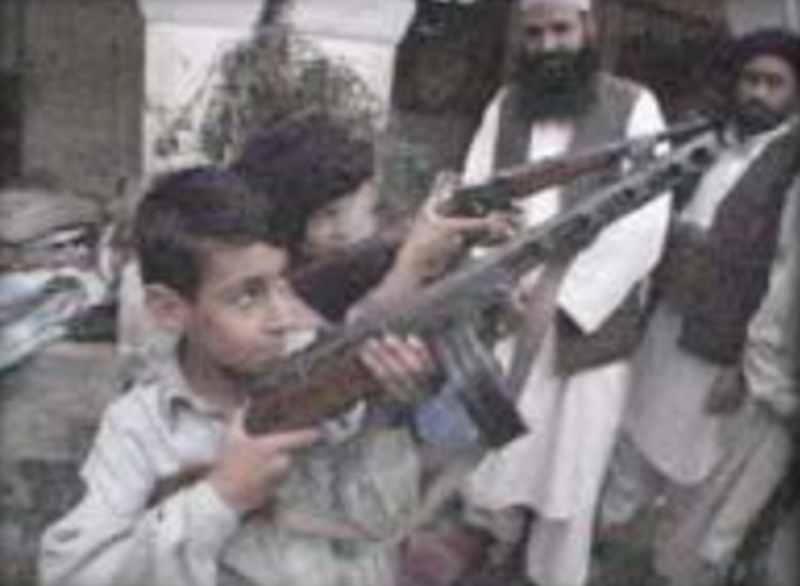
Alarmed by the rise of insurgent groups in Pakistan, the U.S. Ambassador to Afghanistan, retired Lieutenant-General Karl Eikenberry, sent a secret cable. It said:
More troops wont end the insurgency as long as Pakistan sanctuaries remain. Pakistan will remain the single greatest source of Afghan instability so long as border sanctuaries remain, and Pakistan regards its strategic interests as best served by a weak neighbour.
Despite Pakistan’s repeated assertion that Osama bin Laden was not in Pakistan, on May 2, 2011, the United States found and killed Osama bin Laden in Abottabad, few hours from Peshawar. He was hiding in a building–that seemed to be purpose-built to protect him–very close to an elite military academy.
After Osama bin Laden was killed, the Pakistani establishment arrested Shakil Afridi, the doctor who helped the CIA in finding the terror mastermind, under false pretexts and jailed him for 33 years. Even today, many in Pakistan consider Osama bin Laden to be a “martyr.” Such is Imran Khan’s (and the Pakistani establishment’s) reverence for Osama bin Laden that he publicly called him a “martyr.”
Through the decades, the United States “foolishly” gave over $33 billion in Aid to Pakistan. It’s efforts to persuade Pakistan—through economic incentives, military aid and by trying to forge a strategic partnership—have failed to induce Pakistan to change.
If anything, the ISI’s support for jihadi groups has deepened further. The ISI has also launched a campaign to root out and murder Western counterterrorist sources; harassed and physically threatened U.S. intelligence officials dispatched to work with them on counterterrorism.
Pakistan continues to aid and abet terror groups. Some of the world’s most dangerous terror groups–from Jaish-e-Muhammad and Lashkar-e-Taiba to Harkat-ul-Jihad Islami and Hizb-ul Mujahideen–find a home in Pakistan. There is well-documented evidence to show that the ISI channeled funds to Lashkar-i-Taiba, a terror group that promotes jihad in Kashmir and has been involved in numerous terrorist attacks on India. Maulana Masood Azhar, the leader of the terrorist outfit Jaish-e-Mohammad, is lionised in Pakistan.
Omar Saeed Sheikh, the British-Pakistani terrorist accused of kidnapping and beheading the Wall Street Journal’s journalist Daniel Pearl, is now a free man in Pakistan. A Pakistani court has acquitted all the men accused of murdering the journalist, a travesty of justice.
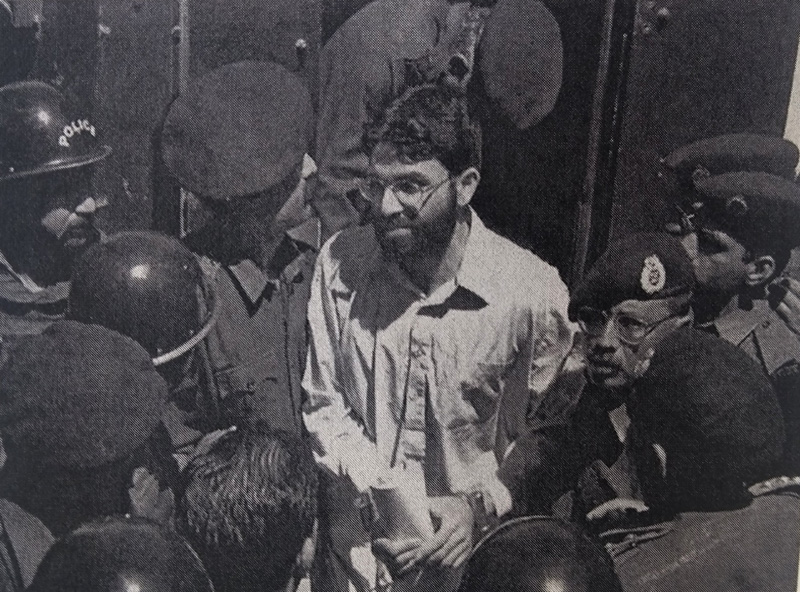
The U.S. State department’s Country Report on Terrorism 2019 explicitly states Pakistan has “continued to serve as a safe haven for certain regionally focused terrorist groups” and has “allowed groups targeting Afghanistan…as well as groups targeting India… to operate from its territory.” The State Department also concluded that Pakistan’s government and military “acted inconsistently with respect to terrorist safe havens throughout the country. Authorities did not take sufficient action to stop certain terrorist groups and individuals from openly operating in the country.”
After the Taliban’s capture of Kabul, as the crisis began to unfold, the Pakistani establishment, desperately tried to use the crisis in Afghanistan to its advantage. Despite all the talk of “breaking the shackles of slavery,” the Pakistani establishment went back to the U.S. with its begging bowl.
“If there’s no money in Afghanistan, if there’s no governance, if ISIS-K and al-Qaeda and others take root, what do you think will happen?,” asked Pakistan’s National Security Advisor Moeed Yusuf, and issued a stark warning that a 9/11-like event is likely to repeat if the world does not ‘aid’ the Taliban. Yusuf’s statement is a threat–disguised as a plea for good governance and humanitarian aid.
Pakistan’s rogue behaviour has been going on for decades. It’s sinister double games have had a devastating impact not only on South Asia, but on the rest of the world. The Frankenstein monster of jihadi extremism fathered and nurtured by the Pakistani military and the ISI, though “mid-wifed” by the United States, has had a devastating impact on the world.
Far from falling for Imran Khan’s spin, the international community must take cognisance of Pakistan’s rogue behaviour and impose targeted economic and military sanctions that cripple terror financing structures on which Pakistan survives.
-30-
Copyright©Madras Courier, All Rights Reserved. You may share using our article tools. Please don't cut articles from madrascourier.com and redistribute by email, post to the web, mobile phone or social media.Please send in your feed back and comments to [email protected]

